If “truth” in the online ecosystem is being manipulated, does that leave educators like us with a special responsibility? This was the question framing this year’s Global Studies Outreach Conference (GSOC), “Dis/Misinformation: Perspectives and Pedagogies for Educators in the Post-Truth Era.” Bringing together 40 educators from across the U.S. and beyond, the annual conference addressed this massive global problem in multiple dimensions, ranging from deliberate efforts at disinformation by national actors, the inability or unwillingness of shifting social media platforms to contain it, and the ways in which individuals with very different levels of understanding engage in it.
First launched in 2013, Global Studies Outreach at Harvard is a cross-university collaboration among centers and programs that share a commitment to conduct educational outreach to help the public, especially K-14 teachers and students, better understand the complex world in which we live. In addition to the Global Health Education and Learning Incubator at Harvard University, GSOC is co-sponsored by the Davis Center for Russian and Eurasian Studies, the Center for African Studies, and the Asia Center.
Throughout the conference, dis/misinformation about COVID-19 and vaccinations was much on the minds of educators, and the focus of the session on July 27 organized by GHELI. In the initial panel, “Misinformation and Public Health,” public health experts from the Harvard T.H. Chan School of Public Health examined the devastating effects of dis-information on public health, or “info-demic,” that has exacerbated the COVID-19 crisis.
GHELI Faculty Director Dr. Sue J. Goldie, the Roger Irving Lee Professor of Public Health, provided a framework for understanding the complex societal dimensions of public health crises, contextualizing the discussion of “verifiable information” as an important piece of the story, using the tools of decision science as they are applied in the population science of health. Dr. Rifat Atun, Professor of Global Health Systems, stressed the fact that we are not just having a pandemic, but an “info-demic” where COVID-19 is concerned—in the language of the WHO Director General—that this is happening not only in the U.S. but on a global level which requires counterstrategies that work in multiple dimensions. Dr. Kasisomayajula Viswanath, Lee Kum Kee Professor of Health Communication, suggested that in this global ecosystem of knowledge there is not just a proliferation of misinformation, but a proliferation of platforms to deliver it, serving different national and political interests, making it especially susceptible to a “spiral of amplification,” in which expertise is “defused and contested.” Dr. Zach Ward, Research Scientist, Center for Health Decision Sciences (CHDS), noted the disturbing lack of “data literacy,” and sophistication within the public about statistical or scientifically established truth claims, such as claims about whether a drug or a vaccination might actually work; pose a distinct danger. Moderator and CHDS Multimedia Design Associate Jacob Waxman synthesized the presentations in a question for discussion groups on how such scaffolding might inform the way we teach.
A clear message of the panel is that perhaps the strongest antidote to dis-information about public health is factual, research-based, peer-reviewed information of the sort that a Research One University such as Harvard can best provide. One prime example? The Global Health Education and Learning Incubator digital repository, which contains high-quality and open-access resources, continually updated from vetted sources and studies on a range of interdisciplinary health matters, and specifically designed as a foundational tool for educators at all levels.
